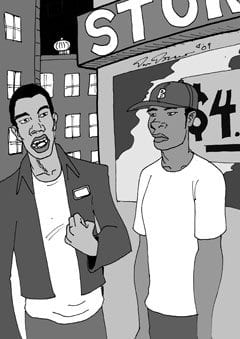
Beyond “Kumbaya”
The election of Barack Obama as president has had a dramatic effect on race relations in America. This enormous sociological shift has stimulated responses in various segments of American society.
Conservatives with negative racial attitudes have rallied around talk show host Rush Limbaugh. He established his racial insensitivity credentials when he played the insulting ditty “Barack the Magic Negro” on his program during the presidential campaign. He then asserted that Gen. Colin Powell’s articulate and well-conceived endorsement of Obama “… was totally about race.” After Obama’s inauguration, Limbaugh secured his position as bigot-in-chief when he proclaimed, “I hope Obama fails.”
At the other pole are those Americans who sense an opportunity to create a “post-racial” nation. They want to increase the intensity of interracial discussions with the hope that the significance of racial and religious differences will then evaporate. While this is indeed a desirable objective, history tells us that the significance of ethnic differences seems impossible to eliminate.
Since World War II — another so-called “war to end all wars” — there have been innumerable armed conflicts around the globe. These wars usually have their roots in ethnic, tribal or religious differences. A brief review of some of the conflicts that generated the most public attention will indicate the elusive nature of world peace and the underlying causes of racial and religious discrimination. The list includes:
• Arab-Israeli Wars — 1948-1949, 1956, 1967, 1973-1974, 1982
• Korean War — 1950-1953
• Vietnam War — 1959-1975
• Nigerian-Biafran War — 1967-1970
• Khmer Rouge slaughter in Cambodia — 1975-1979
• Anglo-Irish wars
• Tamil Civil War in Sri Lanka — 1983-present
• Basque Rebellion in Spain — 1960s-present
• Liberian Civil War — 1989-1996, 1999-2003
• Bosnian Serb genocide of Muslims — 1992-1995
• Rwandan genocide — 1994
• Al-Qaida attacks in New York — 1993, Sept. 11, 2001
• Darfur genocide in Sudan — 2003-present
A primary cause of the conflicts is a perceived grievance by one group against another. As is clear in the al-Qaida terrorism, there is often only a tenuous connection between the grievance and the culpability of the victims. It is clear that ethnic and religious hostilities are quite entrenched.
Some well-intentioned people are inclined to pursue a “Kumbaya” approach to ending racial and religious bigotry, but there is another, potentially more critical problem on the horizon. While the election of Obama has generated optimism among African Americans, there is also a growing sense of desperation among lower-income residents because of the economic meltdown. The violent expression of black desperation would certainly hamper efforts to achieve racial understanding.
There was euphoria in black America after the passage of the Civil Rights Act of 1964 on July 2. However, there was not an extended period of patience for positive results. Just a little more than a year later, on Aug. 11, 1965, the Watts riots erupted. This was the first of a number of urban riots to beset the nation.
Expectations are now high, but the economy is weak. The unemployment rate for blacks is more than 5 percent higher than it is for whites. Conditions are even worse among the young, the most volatile group. There needs to be a major effort to help keep young black males on the right track even as the Obama novelty wears thin.






